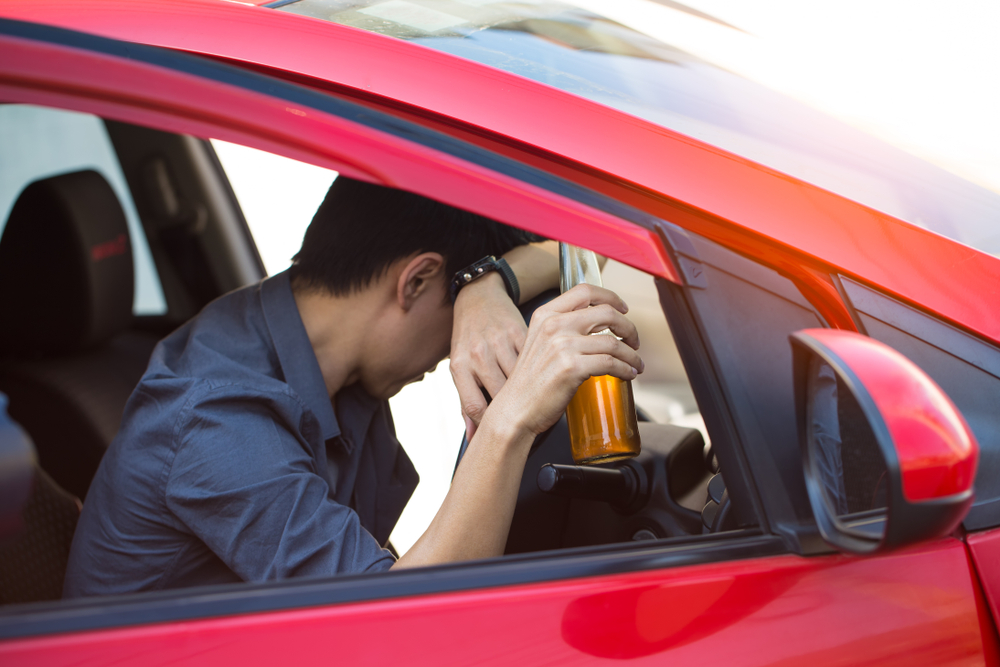Pennsylvania has strict marijuana use and driving laws. If you have one nanogram per milliliter (ng/ml) or more of marijuana metabolites in your blood, you could face DUI charges. However, you may still face charges if you are unable to safely drive, operate, or maintain control of the vehicle due to a controlled substance.
If you were charged with a DUI, an attorney can protect your rights by ensuring that your arrest, test results, and charges are fair and accurate. They can use the evidence they gather to support your innocence, reduce your charges, or fight for a dismissal.
You May Face DUI Charges Under These Circumstances
After a blood test, if you pass the metabolite threshold, the presence of marijuana in your bloodstream can be used as evidence. However, the presence of marijuana alone doesn’t necessarily warrant intoxicated driving charges. In many cases, prosecutors will need to show that you displayed signs of impaired driving, like:
- Nodding off
- Swerving in and out of proper lanes
- Speeding or driving excessively slow
- Ignoring stop signs and stop lights
- Otherwise behaving dangerously while driving
Other Controlled Substances for Which You Could Face DUI Charges
You could face DUI charges for driving under the influence of other substances than marijuana. The International Association of Chiefs of Police (IACP) includes these as categories of drugs that can impair a person’s driving:
- Depressants
- Stimulants, such as Cocaine and Methamphetamine
- Narcotics, such as opiates and heroin
- Hallucinogens, such as LSD or Ecstasy
If the substance causes impairment, its use while driving can result in a DUI. Per the National Highway Traffic Safety Administration (NHTSA), even prescription drugs can meet these criteria.
The Penalties of a DUI Driving High Conviction
The penalties associated with driving high convictions are as follows:
- First offense: A first offense is usually a misdemeanor for which you could face up to six months imprisonment and $5000 in fines. This charge also includes mandatory traffic school, license suspension, and community service hours.
- Second offense: A second offense includes the possibility of the previously listed punishments with a longer minimum jail sentence.
- Third offense: The third offense increases the charges to a second-degree misdemeanor for which the minimum jail time is higher than the previous two offenses. Other punishments, like community service, fines, license suspension, and driving school, also apply.
Other DUI Conviction Consequences
DUI convictions have consequences outside of the legal system, too. If convicted of a DUI, you could face challenges in the following areas:
- Employment prospects
- Interpersonal relationships
- Car insurance rates
However, remember, a charge isn’t a conviction. If you’ve been charged with a driving high DUI, you still have the opportunity to fight for your innocence and future.
Can I Refuse a Drug Test?
Technically, in Pennsylvania, you’re allowed to refuse a drug test after being pulled over. However, if you do refuse a drug test, your license will be immediately suspended for several months. The amount of time your license is suspended hinges on previous criminal convictions.
This is due to implied consent – all roadway users implicitly consent to law enforcement drug and alcohol testing. In most situations, you don’t have the right to speak with a lawyer before testing commences. Therefore, it’s best to avoid putting yourself in a position where you could be pulled over and tested for marijuana use.
Your Options After Being Charged With a DUI
Those charged with a driving high DUI have the option to hire a lawyer. A lawyer can rely on several defenses, including:
- Suppressing blood test results: If the police didn’t have probable cause to detain you before conducting a blood test, the results could be thrown out.
- Questioning the validity of testing results: Testing for marijuana usage is complicated. It’s possible that testing authorities conducted a test incorrectly. A lawyer can exploit this opening by arguing against the validity of the test results.
- Using evidence to support your innocence: Eyewitness testimony and other evidence could be used to support your side of the story. If it’s available, we will collect and use it to bolster your case.
These are only a few examples. An experienced DUI lawyer can review every aspect of your case to determine if and how law enforcement made mistakes. These errors could lead to your case being terminated or your charges being reduced.
DUI lawyers can provide other services, including:
- Entering and negotiating a plea deal
- Answering questions you have about your case
- Representing you inside and outside of the courtroom
- Explaining your options after an arrest
Secure a Driving High DUI Lawyer from McKenzie Law Firm, P.C. Today
At McKenzie Law Firm, P.C., we’re here to help you explore your options. We can discuss your case and fight to prove your innocence. Remember, you don’t have to face state prosecutors alone. Contact our offices for more information today.




